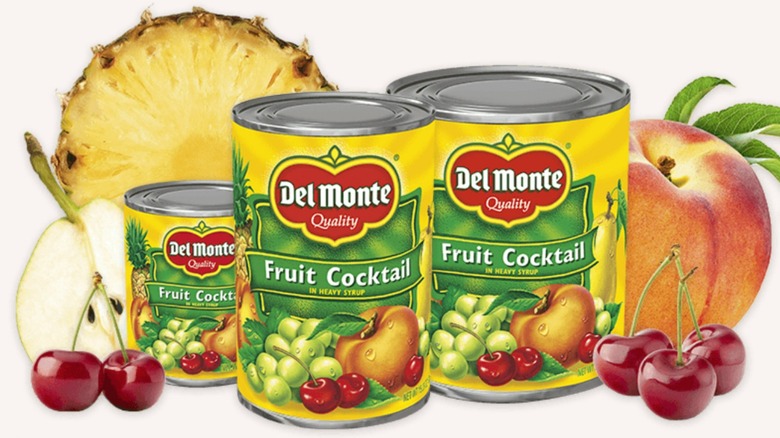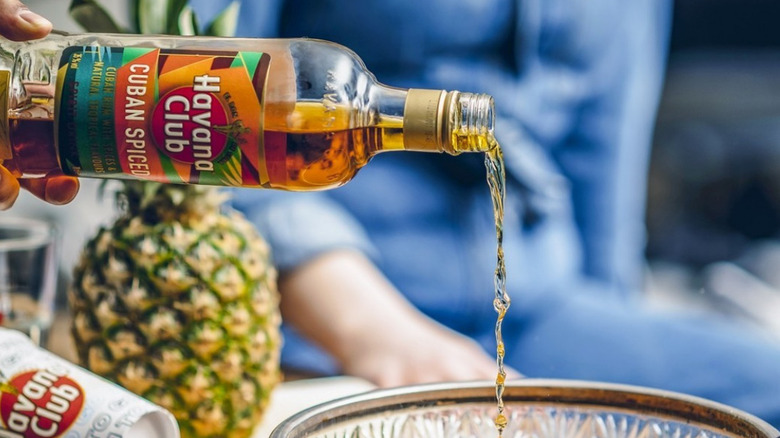The Boozy History Of The Original Canned Fruit Cocktail
In the U.S., a fruit cup refers to diced, mixed fruit served in a small cup or bowl as a dessert course (per Merriam-Webster). In the U.K., however, a fruit cup is a gin-based cocktail with diced fruit, spices and, perhaps, a splash of flavored liqueur, per Difford's Guide. Although the British version of the fruit cup is, in fact, a cocktail — the precursor to the ubiquitous Pimm's cup cocktail, it should not be confused with fruit cocktail — because fruit cocktail is something else entirely.
Like an American fruit cup, fruit cocktail (which is also an American invention, according to The Kitchn), involves a small portion of diced fruit. But to qualify as a fruit cocktail, said fruit must include pears, grapes, cherries, and peaches (via Harvard Magazine), as well as pineapple, says The Kitchn. Moreover, the ratio of each of these fruits to one another and to the total must adhere to rigorous guidelines set by the Food and Drug Administration.
Notwithstanding the word "cocktail" in its name, fruit cocktail need not contain alcohol. But it can and sometimes does, according to Merriam-Webster, which points out that fruit cocktail is sometimes enhanced with splash of sherry or other liquor and served in a cocktail up-glass as a first course. In fact, it's that boozy splash that may have given fruit cocktail its name in the first place, according to The Kitchn.
Fruit cocktail: Because there's no booze in salad
Most people associate fruit cocktail with canned fruit. But long before the dawn of commercial canning in the early 20th century (via The Spruce Eats), people who wanted something along the lines of what we now know as canned fruit cocktail would have had to dice up the fruit themselves (via The Kitchn). Left to their own devices, it's not surprising that somewhere along the line, someone got the idea to enhance their cut-up fruit with a splash of their favorite spirit (e.g., brandy). They were, after all, already adding mayonnaise to apples, raisins, and walnuts to make Waldorf salad, and whipped cream and marshmallows to mandarin oranges, pineapple chunks, and coconut to make Ambrosia salad.
Some, however, felt that as soon as you add booze to your fruit salad, it was no longer a salad but a cocktail — a "fruit cocktail," as one influential cookbook author, Sarah Tyson Rorer, referred to it in 1902, per The Kitchn. We can't say for sure whether Rorer was the original coiner of the phrase, but we do know the name caught on. And despite the fact that Prohibition banned the sale of alcohol between 1920 and 1933, the name stuck. Before long, Del Monte was mass-producing and -selling canned fruit cocktail, minus the booze. However, consumers were free to add their own ... and so are you!

